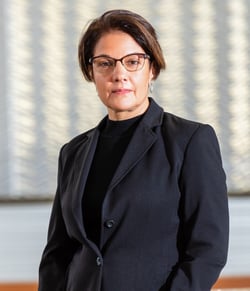
In continuation to my August Blog, “Mind Matters – Thoughts on Higher Education,” I’d like to continue the narrative on the importance of higher education.
To recap my thoughts, Education enables a student to pivot and to use learned skills in a multitude of careers and roles. It offers students exposure to unlimited possibilities and introduces them to a variety people, cultures, courses and career options that may not have been previously aware. Education is not only academic but helps contribute to the personal growth and development of each and every student — life skills, the navigation of personal choices, exposure to new people and ideas and different ways of living and thinking. Studies also show that higher education also correlates to higher lifetime earning ability. All these important features contribute to a more rounded, whole and developed person. And, with that it is important that we think and work towards accessibility and affordability of educational opportunities for all motivated students.
What else have I come across that an educational experience can contribute?
• Experiential learning — As humans, we learn from our hands-on, minds-on experiences. Some of us work in a field that gives us opportunities to develop early skills. Some of us (myself included) have had the opportunity to work in their communities, or even study in other places, other countries. These opportunities help us both expand our perspectives, and in many cases – our career choices, providing valuable changes in direction. At UES we hire several interns throughout the year and we appreciate their enthusiasm and the “get it done” capabilities they bring as they learn on the job skills.
• Problem solving and critical thinking — It is through experiences both inside and outside the classroom, that students navigate challenges and work through problems independently and collaboratively, making them more employable after graduation. In fact, our key customers routinely emphasize the importance of critical thinking skills to their workforce and growth. We share their desire to employ our own problem solving and critical thinking workforce. We can vouch that both problem solving and critical thinking are vital skills in science and technology-oriented careers, helping us:
• Raise and formulate questions clearly and precisely, even when faced with complex problems
• Gather and assess relevant information – in both concrete and abstract senses
• Interpret the information, coming to well-reasoned conclusions
• Think open mindedly with alternative perspectives
• Reorganize, re-assess assumptions, implications, and consequences as needed, and
• Communicate solutions effectively to others
Here at UES, Inc., we not only support our staff and associates in pursuit of further education, we’re also keen on supporting our local communities’ STEM programs. We welcome tours of our facilities and talks to give advice about some of the different kinds of careers a student may look forward to if they decide to follow their aptitude in science, technology, engineering, and math. Talking to students, interns, or anyone else who would like to listen to us describe careers in STEM centric positions, like the ones we offer, is exciting and infectious to us. Learning is fun and so can be your work and career as we learn every day at UES. What do you think are some of the advantages of education?
